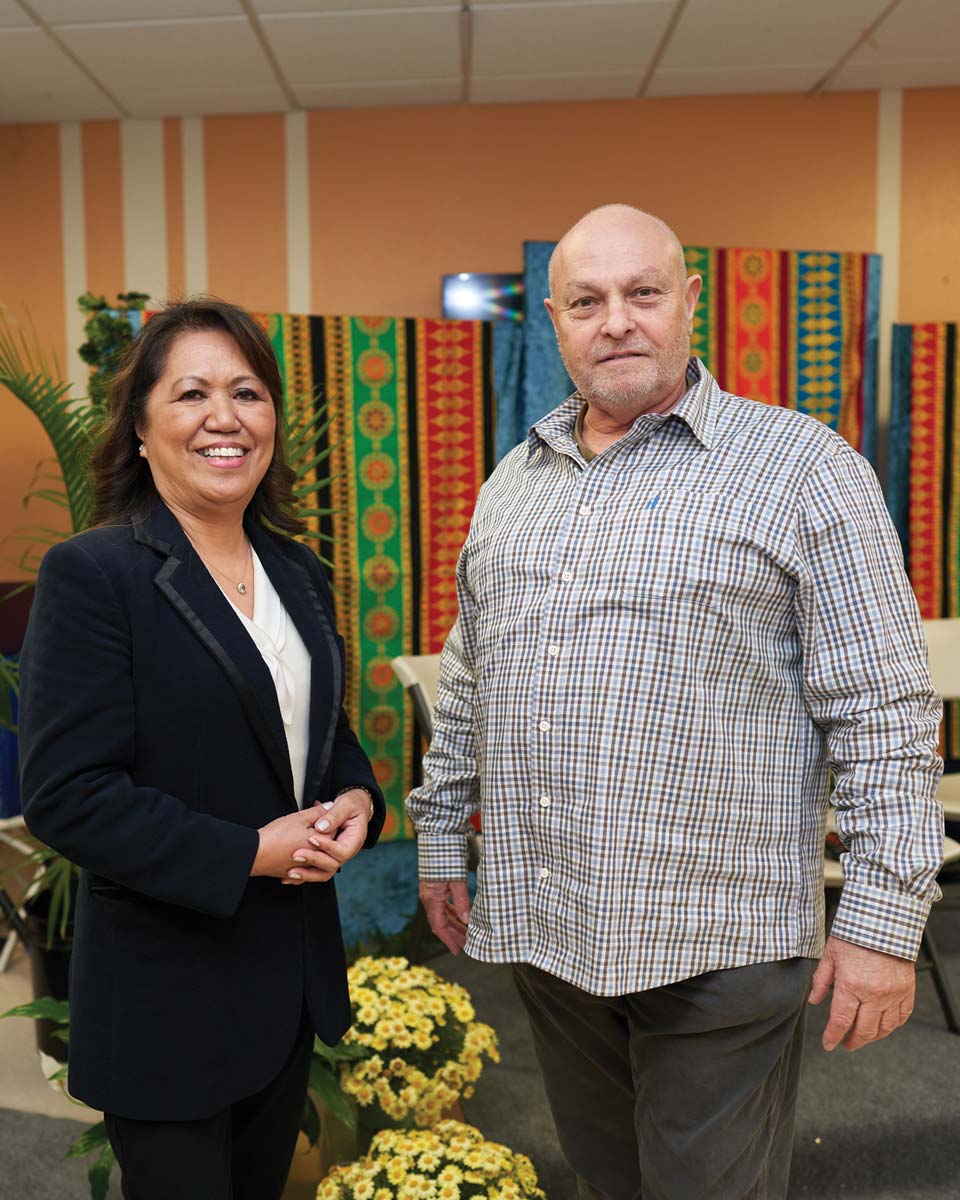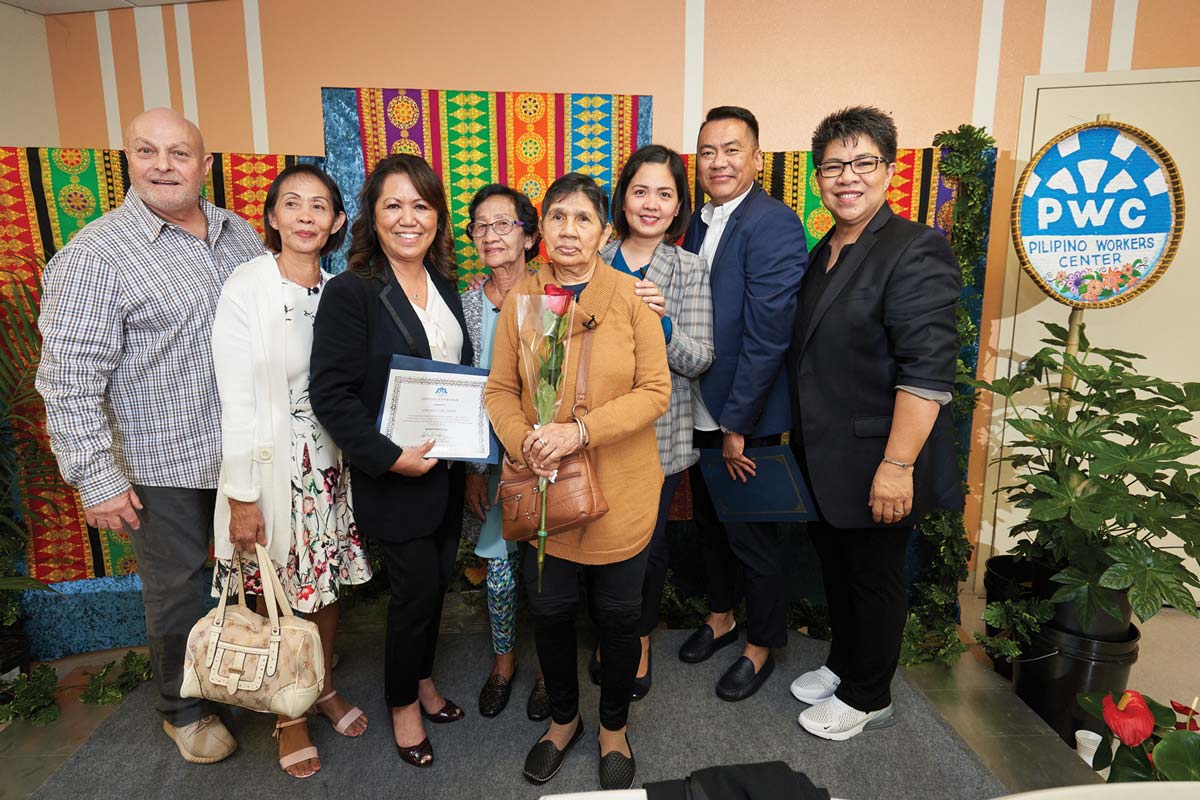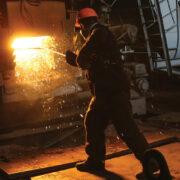
ONLY two hospitals in the city of Los Angeles received the highest five-star rating from the Centers for Medicare & Medicaid Services (CMS) this past January — and one of them is in the heart of Historic Filipinotown and is run by a Filipina American.
Formerly known as the Silver Lake Medical Center, the Los Angeles Downtown Medical Center (LADMC) along West Temple Street has undergone a complete transformation in the last 12 months under the leadership of Vicki Palana Rollins, the first Fil-Am to co-own a hospital system in the United States.
Rollins, along with business partner William Nelson, purchased the struggling medical center after it went into bankruptcy in February 2019.
Today, the 36,000-square-foot hospital holds 219 inpatient beds and has a 24/7 urgent care center with over 1,600 staff members total — about 65% of whom are of Filipino descent — to deliver quality and culturally sensitive health care to Historic Filipinotown as well as to the surrounding neighborhoods of Echo Park and Silver Lake.
“The hospital had a bad history and reputation, with two bankruptcies…Our timeline to rehabilitate the hospital was like two years but miracles can happen,” Rollins told the Asian Journal following the first anniversary of LADMC on March 5.

She added, “When you just really focus on what you want to do for the operations and the patients, then everything falls in place. We were able to change the culture of the people here.”
The reinvigorated morale was evident during the anniversary as the staff and community celebrated the strides over the past year.
Among them are the recruitment of 60 new medical and surgical staff for the operating rooms and psychiatric services, and the upgrades of digital X-ray systems, surgical and pulmonary function test equipment.
“On the other side of the urgent care, we’re doing behavioral mental health screening, the ones who are going to be admitted to the psych unit of the hospital, so the acute hospital has a 40% behavioral component,” Rollins described. “All the services came back because we were able to recruit a bunch of physicians, including a few Cedars-Sinai physicians and some from St. Vincent’s Hospital after it closed.” (Cedars-Sinai is the only other five-star hospital in the city.)
In addition to the Historic Filipinotown hospital, the sale came with the center’s Ingleside campus, which has 118 psychiatric beds, in Rosemead about 10 miles away.
With the coronavirus pandemic on everyone’s minds and affecting LA County at a growing rate, LADMC said it is prepared to take in patients and abide by guidelines by the Centers for Disease Control and Prevention (CDC). It is also pushing telehealth services for non-emergencies so patients can see a doctor instead of physically coming to the hospital as social distancing measures are in place.
Rollins, who is originally from Tolosa, Leyte, began her career as a registered nurse when she migrated to the United States in the early ‘80s and worked her way to becoming a psychiatric nursing and clinical instructor and a licensed nursing home administrator.
“At the time I migrated, if you wanted to be a manager, it was tough because as a woman and a minority, you had to do your homework four, six times more than your counterparts,” she said.

She and Nelson formed Rollins-Nelson Healthcare Management in 1998 and together, they are the owner/operators of several skilled nursing facilities, assisted living communities and acute care hospitals across Southern California in cities like Long Beach, Torrance, Glendora and Perris.
The first acute hospital the duo acquired was West Covina Medical Center, a short-term hospital with 46 staffed beds, in 2014. As operators of skilled nursing facilities, this purchase was the natural next step as the two services need to work in unison to provide the continuity of care for patients.
“The delivery of care will be much better and the price of delivering care would be cost-effective. Our patients were going to different acute hospitals and we would lose some of our patients because they would not come back to our facilities,” Rollins said.
Four years later, the first opportunity to purchase Silver Lake Medical Center was presented to the company, but the transaction fell through. The hospital soon went into bankruptcy and the RollinsNelson Group joined the auction in February 2019.
The campus had undergone a series of misfortunes over the years before the current ownership. When it was City of Angels Medical Center, the former CEO was sent to prison for a massive scheme to defraud Medicare and Medi-Cal programs by recruiting homeless patients for unnecessary medical services. The name changed to Silver Lake Medical Center in 2009 and some controversies followed, including a $550,000 settlement by LA City and LA County prosecutors after the facility illegally dumped homeless patients at bus and train stations, according to the Los Angeles Times.
“Our company specializes in taking over troubled facilities. That’s what we do best. When there’s a lot of room for improvement, we see that we can do a lot. That been our pattern of success,” Nelson, who serves as chief executive officer of LADMC, said.
Added Rollins, “Fundamentally I think that people were good here. They just needed direction, reeducation, nurturing, guidance and leadership.”
With several facilities under their belt, the duo says they bring the “RNG philosophy” to each one, which includes personalized attention and care for employees as much as they do for their residents and patients.
Rollins touts that given the patients of different cultures and backgrounds who come through the LADMC doors, delivering culturally relevant care is at the forefront. That also means serving food that suits the patient’s preferences and culture, providing immediate transportation so patients aren’t waiting too long after being discharged, or easing family members’ anxiety as they’re waiting for loved ones, she said.
When asked about the CMS’ five-star rating — the first time in the hospital’s 45-year history — Rollins said the overall hospital culture is reflected in that. The CMS uses a five-star quality rating system, with 57 quality measures across seven categories from the effectiveness of care to morality, to evaluate the experiences Medicare beneficiaries have with their health plan and health care system.
“That’s the philosophy and the culture that we’ve been promoting with personalized care. It takes all of the people here in the hospital to unify and look at the mission and vision of the hospital and really work towards that goal,” she said. “Those little touches mean so much and our staff gets it. They go ahead and don’t have to wait for us [to approve] it.”
For the staff, Rollins and Nelson implemented free lunches every Tuesday and Thursday, a small investment they said would contribute to team building within departments. By the eight month of operation, every single staff member, from the housekeeping staff to managers, received salary adjustments.
Rollins wanted the housekeeping and maintenance staffers to receive their raises first before managers did.
“We brought in the housekeeping department, told them they were receiving raises and shared how important housekeeping is because when family members come into a hospital, they may not know much about the doctors or how good the hospital is. But when they see a clean environment, the staff is friendly and the mood is upbeat, then they feel good,” Nelson narrated.
Though she holds an executive position now, Rollins isn’t above throwing herself into the action. There will be instances when she puts on her nursing uniform and helps move beds around when they’re busy.
“What Vicki brought here to [LADMC] was a can-do spirit. It’s all about teamwork. The days of ivory towers where people are too important to do things, everything’s delegated, don’t communicate together. That was the dysfunctionality that we inherited and that we eliminated,” Nelson said. “We created a spirit of work together. We set an example that we pick up the litter and we expect our managers to do everything to work together.”

Outside of the company, Rollins dedicates time to giving back and paying it forward. After Super Typhoon Yolanda — which ravaged areas in the Visayas including her hometown — she and her family helped in Tolosa’s rebuilding efforts, including setting up a vocational and technical school and providing scholarships for students. In 2018, another unlikely, world’s collide moment came when Rollins heard about the case of Nanay Fedelina Lugasan, an 83-year-old human trafficking victim who was rescued from the San Fernando Valley after six decades of abuse from a Filipino family. Lugasan, who happened to be from the same province as Rollins, was placed at one of the skilled nursing facilities in Long Beach operated by Rollins-Nelson.
“I mean, what are the odds? If she landed in Hollywood, for example, they would send her to a random facility,” Rollins said. “Whereas she found a home in our facility, she has a private room and has transportation when she wants to go out. She has a normal life now. The reward in life is when you give back.”
As the nursing field continues to be dominated by Filipinos — the second largest group of California’s active registered workforce at nearly 18% — Rollins said she vows to continue to mentor nurses, especially those who seek leadership roles at their organizations.
“They always come to me and I tell them, ‘Find your niche and find where your heart is…Don’t lose focus on why we come to work daily and that is to take care of patients,” she said.
She added, “When you lead an organization, whether it’s health care or any other type of business, you want to be on top of your game and just be fair to everybody and do the right thing. Then nothing is really complex at the end of the day. It’s the people who make things complex.”










Thanks for the article. I didn’t know. I just recovered and was discharged from this very same hospital today. They saved my life.